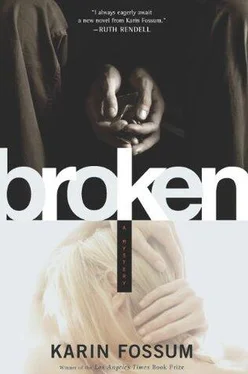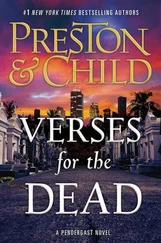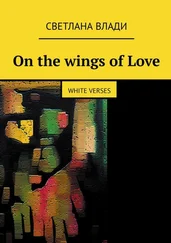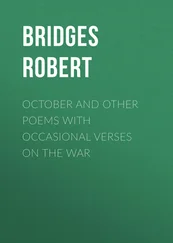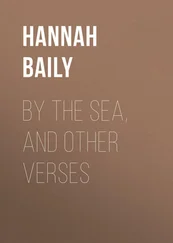‘The tyranny of character,’ I whispered.
‘Tyranny. Yes, that’s a good word. All power dynamics — all instances of repression and authoritarianism and manipulation — are just failed metaphors for the ways our own brains interact with us. That was the grand irony of your mother’s life — she could fight all those external tyrannies, but not the internal one.’
‘Wait. What?’
‘The Poet’s death released it. Released something in her brain. Something that ate her up. And once it was released, it stopped having anything to do with the Poet. That’s the thing I needed to understand. That’s what you must understand, Aasmaani. Understand the tyrant within her.’
‘How do you know you’re not just making up a story that’s bearable?’
‘Darling, there was nothing bearable about watching your mother go through that. Near the end she even said, “I would give anything to believe this is about his death. I would give anything to have something to which I could attach this. If there’s a cause I can grapple with it. If there’s a reason, there’s a way out.” But in the end, that’s what she couldn’t believe — that there was a way out.’ There were tears in her eyes now.
‘You tell yourself one story, I’ll tell myself another. Either way, Mama is lost to both of us. Does it really matter how we get to that bottom line?’
‘It isn’t the bottom line, Aasmaani — it’s the starting point of how we learn to live without her. She didn’t kill herself because you weren’t reason enough for her to stay alive — that’s not why she did it. And it isn’t that she was leaving you for the Poet. Those aren’t the reasons. You must accept those aren’t the reasons. She hung on to an intolerable existence for two years because of you. Not me — I’ve always known that. She didn’t hang on for me. She did it for you. She did it until she simply couldn’t do it any more.’
I stood up. I couldn’t even be angry with her for consigning my mother to the role of suicide victim. If that was the panacea she needed to cope with Mama’s disappearance, let her have it. ‘I really have to go.’
Someone blew a car-horn outside the gate. ‘That’s Ed. He’s home. Please, don’t let me make you leave. He won’t forgive me for that.’
I nodded. ‘Did he hate my mother? If he believed you were having an affair…’ The enormity of what he had kept concealed from me was only just beginning to register.
‘Oh no. Not at all. He adored her. He hated me for what he believed was my seduction of a grieving woman. Or used to. But it’s the funniest thing. Sometimes there’s almost a symmetry in the world, isn’t there? The other day, just after he’d spent an evening with you, he came into my room and he said, “Amma, I’m beginning to understand love.”’ She stood up, put her arms around me and kissed my forehead. ‘Thank you for that. Now, go on, go up and wait for him. Tell him as much or as little as you want about our conversation. I advise the former. And Aasmaani, borrow these books and read them.’ She gestured back to the pile on the sofa. ‘That’s all I’m asking.’
I embraced her without answering and then ran up the stairs to the second floor. I stopped at the first door on the left. It was a linen closet. I laughed softly to myself and opened the second door, which led into a TV lounge. I was about to walk in when I changed my mind and stepped through the third door into his bedroom.
It was a long room, with a bed at one end, next to a window which looked out on to the garden. At the other end was a built-in wardrobe and a desk with a laptop computer on it. There were bookshelves along the length of one wall. I walked over to the bedside table. A lamp, a copy of Rafael Gonzales’s Umbrellas , which I had been urging him to read, a framed picture of a very young Ed hugging his mother. I opened Umbrellas . A bookmark fell out. I picked it up and saw it was a picture of me, which he’d taken from my flat two days earlier when he’d come over to watch the second episode of Boond . We’d stayed up talking until late that night, and I’d fallen asleep on the sofa with his arms around me. I’d woken up the following morning to find myself in bed; on the pillow beside me were buds of raat-ki-rani which had filled my dreams with gardens and moonlight.
The door opened, and Ed walked in. He saw me, smiled, and held out an envelope.

. .
Samina, if we turn away hope when it flies down on to our shoulders and offers its wings to those of our limbs which have long been accustomed to stooping, then how shall we be forgiven?
That’s a metaphor I could once have turned with precision in Urdu. Stooping limbs makes no sense. Can arms stoop? You would not let me get away with such slippages of language. A bird must be a bird before it can be hope, you would remind me, and rightly so. And so, you’d continue, what kind of bird are we talking about here? The shambling vulture with its own stoop or a drillbeaked woodpecker, destroying your antique furniture? A nightingale! I’d say. Oh please, God, not that cliché again; you’d roll your eyes.
I sit here in the fading light, and remember the pleasure of writing while you slept, your breath my only metronome.
For today, for this moment, I can banish the thought that you weren’t speaking to me through the crossword (how did my words about Frass get to you? Is it the sympathetic Minion who takes away everything I write? The first time he did that, it upset me, but then I began to see it as an act of charity. If everything I wrote remained on my desk, I’d know you’d never read it. By taking it away he created the illusion that perhaps, somehow, my words would reach you. It was never an illusion I really dared to believe.) For today, I can banish the thought that it wasn’t you speaking (it can be no one else. No one else knew of the jazz fugues).
But for today, I must also think of all those words I’ve written to you these last weeks. All the words which might have reached you. There was some cruelty in there. If I had the chance I would take those pages back and swallow them, letter by letter. Since that is beyond me, let me say this instead—
Through me, Samina, you found love. If you were to be faithful to me in all my years of absence, you’d be unfaithful to love. I am embalmed memory to you now, and love is not a cucumber — it gains little from being pickled. (That’s a joke — my metaphors haven’t degenerated to that extent.) If the Minions were female, or if my desires were differently constructed, perhaps one of them would have found a place in my heart and my body and my mind.
So, love. Love deeply and passionately. Love foolishly.
If you can.
If you can’t, remember what I now remember, what I have remembered so often all my time in here: Samina, we lived.
We were the Phoenix and the fire, the flight to the sun and the radiance at the end of it. Even when thorns pierced us, they were plucked from Yggdrasil.
Only the language of legend can suffice for our lives.
If I am to remain in here for the rest of my days, if they take all my books from me, take away pen and paper, they will not take away those years I had with you. You, and Aasmaani.
My God, Aasmaani.
She must be a woman now.
Has she eclipsed us already, that brilliant, brilliant child?
JAZZ FUGUES. FRASS. Such simple messages can change our lives. You may never find me, Samina. I have no way of knowing where I am. But don’t let that cause you pain. Your words have reached out to me, all these years later. The worst I feared was that you had ceased to love me. I know now that isn’t true. That’s enough. There’s very little life left in me now, but you’ve given me enough to carry me in joy through all the days that remain.
Читать дальше
